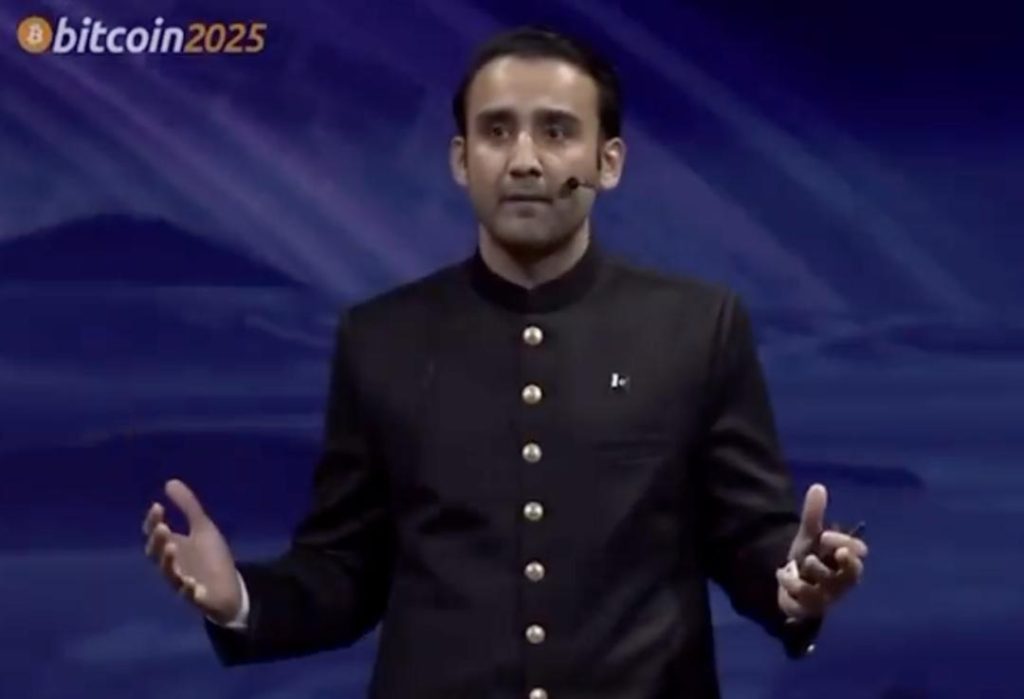
Pak & Bitcoin Suffer from Bad PR: CEO of Pak Crypto Body Linked to Trump-Backed Firm
Pakistan and Bitcoin have long been plagued by negative publicity, with the two often being mentioned in the same breath due to the country’s tumultuous relationship with cryptocurrencies. According to Bilal bin Saqib, the CEO of the Pakistan Crypto Council, both Pakistan and Bitcoin have suffered from “bad PR” and are often misunderstood by the international community.
In an interview with News18, Saqib claimed that Pakistan has been “misrepresented” and that people’s perception of the country is skewed by its history of conflict and political instability. He argued that this negative perception has unfairly tarnished the country’s image and has made it difficult for it to attract foreign investment and develop its economy.
Saqib’s comments come at a time when the Pakistan Crypto Council is facing scrutiny over its deal with World Liberty Financial, a firm backed by US President Donald Trump. The deal has raised eyebrows among lawmakers in the US, who are investigating the firm’s ties to the Pakistani cryptocurrency watchdog.
The Pakistan Crypto Council is the premier regulatory body for cryptocurrencies in Pakistan, and its relationship with World Liberty Financial has sparked concerns over the potential misuse of cryptocurrencies by the country’s financial authorities. Critics have accused the council of prioritizing profits over regulation and of being complicit in World Liberty Financial’s alleged attempts to launder money through the country’s financial system.
Saqib has denied these allegations, claiming that the council is committed to regulating the cryptocurrency industry in Pakistan and ensuring its integrity. However, his comments have only served to fuel further speculation and concern over the country’s relationship with cryptocurrencies.
Pakistan’s troubled history with cryptocurrencies is well-documented. In 2019, the country’s central bank banned commercial banks from dealing with cryptocurrency exchanges, citing concerns over the potential risks and volatility associated with the industry. Despite this, the country’s cryptocurrency market has continued to grow, with many Pakistanis turning to cryptocurrencies as a way to circumvent the country’s strict capital controls and booming inflation.
However, Pakistan’s love affair with cryptocurrencies has also raised concerns over the potential for money laundering and terrorist financing. The country’s financial authorities have struggled to regulate the industry, with many experts warning that the lack of oversight and regulation poses a significant risk to the country’s financial stability.
The Pakistan Crypto Council’s deal with World Liberty Financial has only added to these concerns, with many experts warning that the deal could be used to facilitate money laundering and other illicit activities. The US Senate has launched an inquiry into the deal, with lawmakers demanding answers over the potential risks posed by the partnership.
Despite these concerns, Saqib remains optimistic over the future of cryptocurrencies in Pakistan. He claims that the country has made significant progress in regulating the industry and that the Pakistan Crypto Council is committed to ensuring the integrity of the market.
However, his comments have been met with skepticism by many experts, who argue that the country’s lack of regulation and oversight poses a significant risk to the industry. The controversy surrounding the Pakistan Crypto Council’s deal with World Liberty Financial has only served to fuel further concern over the country’s relationship with cryptocurrencies.
In conclusion, both Pakistan and Bitcoin have suffered from “bad PR” and are often misunderstood by the international community. While Saqib’s comments may be well-intentioned, they have only served to fuel further concern over the country’s relationship with cryptocurrencies. As the Pakistan Crypto Council continues to navigate the complex world of cryptocurrencies, it is clear that the country’s financial authorities must do more to ensure the integrity of the market and to prevent the potential misuse of cryptocurrencies.






